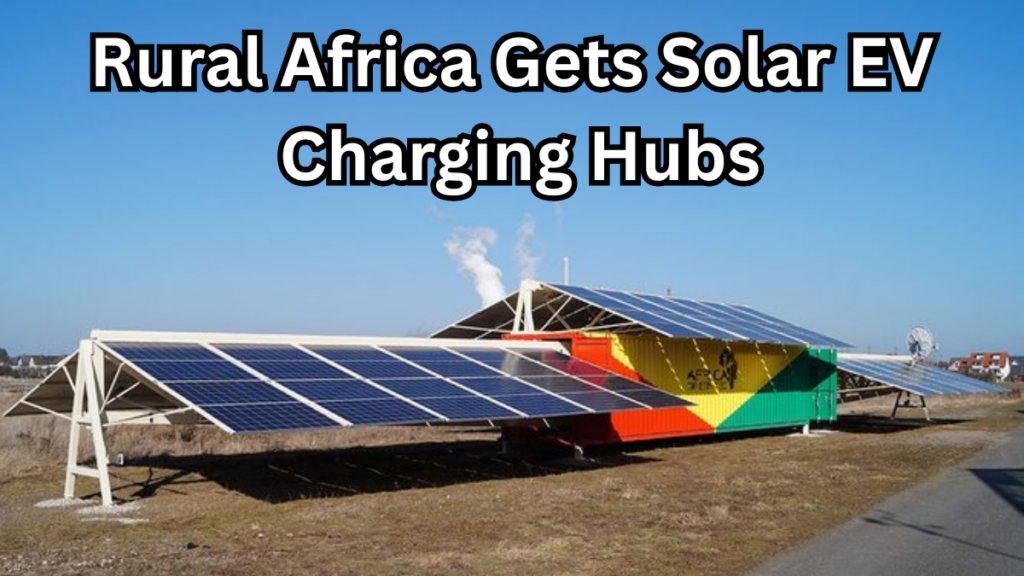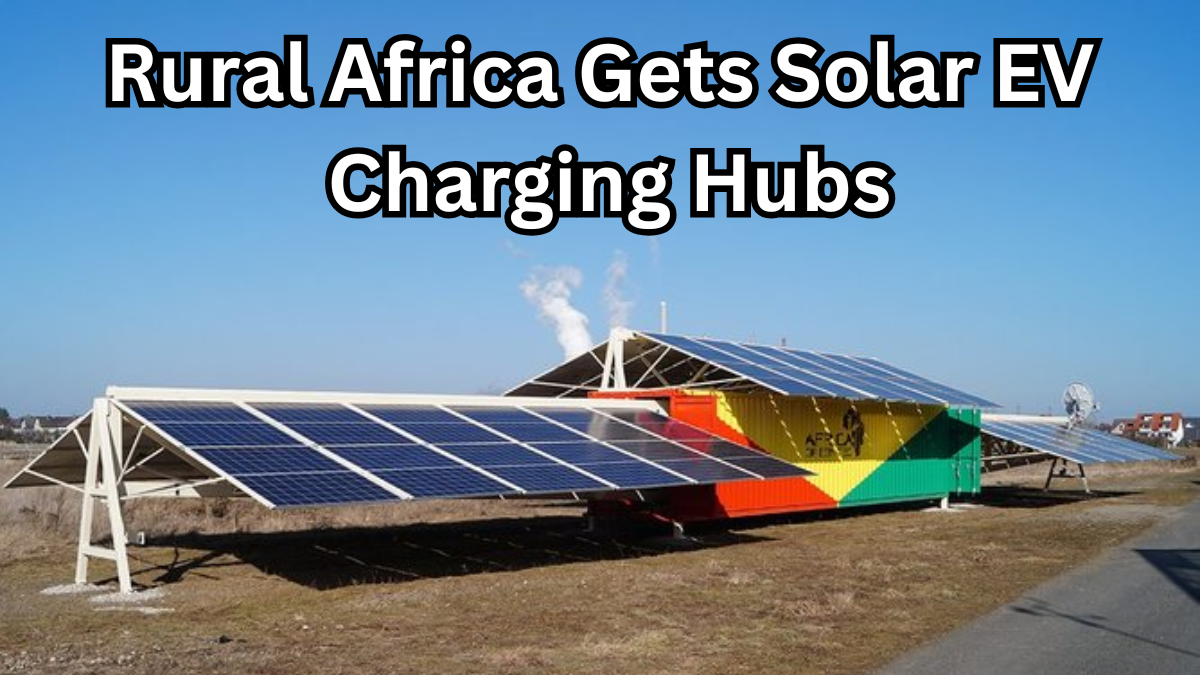In a remarkable step towards sustainable transport and rural innovation, solar EV charging hubs are being introduced in rural parts of Africa. These pilot projects aim to solve two crucial challenges—limited transportation infrastructure and lack of reliable electricity.
Let’s explore how these initiatives are lighting up rural roads and bringing clean mobility to underserved communities.

Why Solar EV Charging Hubs Matter in Rural Africa
Rural regions in Africa often face:
-
Unreliable power supply
-
Scarcity of fuel stations
-
Limited transport connectivity
Solar EV charging hubs directly address these issues by providing:
-
Off-grid, renewable charging options
-
Lower transportation costs
-
Eco-friendly mobility solutions
This is a game-changer in promoting rural innovation and empowering remote communities.
Key Benefits of Solar EV Charging Hubs in Rural Africa
-
100% Renewable Energy: Powered by solar panels, these hubs operate independently of the main grid.
-
Supports Local Transport: Electric motorcycles, scooters, and tuk-tuks can now operate efficiently.
-
Environmentally Friendly: Reduces carbon emissions in rural zones.
-
Lower Charging Costs: Cheaper than traditional fuel options.
Pilot Projects: Where the Action is Happening
Across Africa, solar EV charging pilot projects are already making an impact. Here’s a quick look:
| Country | Project Location | Vehicles Supported | Community Benefit |
|---|---|---|---|
| Kenya | Kisumu | Electric motorcycles | Reliable transport for farmers |
| Uganda | Mbale | Electric tuk-tuks | Affordable rides for villagers |
| Rwanda | Kigali outskirts | Electric scooters | Reduced fuel dependency |
| Nigeria | Rural Lagos | Small electric buses | Better school transportation |
These pilot projects are paving the way for rural innovation and sustainable mobility.
How Solar EV Charging Hubs Work
Simple Yet Smart Setup
-
Solar panels collect energy throughout the day.
-
Battery storage units retain energy for nighttime use.
-
Charging stations provide multiple ports for EVs like bikes, scooters, and tuk-tuks.
Quick Charging Time
-
Motorcycles: 45 minutes to 1 hour
-
Scooters: 1 to 1.5 hours
-
Tuk-tuks: Up to 2 hours
Boosting Rural Innovation Through Clean Mobility
The rise of solar EV charging hubs does more than just charge vehicles—it stimulates rural innovation by:
-
Creating new green jobs
-
Supporting small local businesses
-
Encouraging the development of local EV assembly and repair services
-
Enhancing transportation for healthcare, education, and agriculture
Challenges Ahead
While the future is promising, some hurdles remain:
-
High initial investment costs
-
Limited technical know-how in rural areas
-
Need for policy support to expand the projects
With proper backing from governments and private stakeholders, these challenges can be overcome.
FAQs
1. What is a solar EV charging hub?
A solar EV charging hub is an off-grid station that uses solar power to charge electric vehicles. It’s especially useful in areas with limited access to electricity.
2. Why are solar EV charging hubs important for rural Africa?
These hubs promote rural innovation by providing clean, reliable, and affordable charging options, improving transportation in remote regions.
3. Which types of vehicles can be charged at these solar hubs?
Primarily electric motorcycles, scooters, tuk-tuks, and in some areas, small electric buses.
4. What are the main challenges in expanding solar EV charging hubs?
Key challenges include high setup costs, technical skill gaps in rural communities, and the need for supportive government policies.
Click here to learn more
Sachin is a dedicated writer specializing in education, career, and recruitment topics, delivering clear and actionable insights to empower readers.
